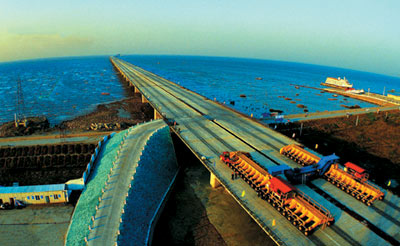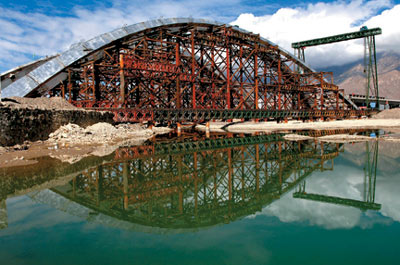 |
 |
 |
 |
 |
| Highways | ||
|
The building of highways is seen as key to accelerating infrastructure construction. By the end of 2006, the total length of highways open to traffic had reached 3.46 million km, including 45,300 km of expressways, ranking second in the world. The skeleton of China's national arterial highways system, a grid of five north-south and seven east-west arteries totaling 35,000 km, will be completed by the end of 2007. Beijing, Shanghai and all municipalities directly administered by the central government and provincial capitals will be connected by highways, mainly expressways. Over 200 cities will be connected by the network. In 2007, China makes sure to complete the construction of the last 2,385 km of the national highways grid; and plans to build more than 5,000 km of expressways, in addition to the building or reconstruction of 300,000 km of rural highways. The aim of the National Expressway Network Plan approved by the State Council in early 2005 is an expressway system connecting all provincial capitals with Beijing and with each other, linking major cities and important counties. The network will have a total length of about 85,000 km, including seven originating in Beijing — the Beijing-Shanghai, Beijing-Taipei, Beijing-Hongkong-Macao, Beijing-Kunming, Beijing-Lhasa, Beijing-Urumchi, and Beijing-Harbin expressways. By 2010, China will have built more than 24,000 km of expressways, and the network skeleton will have taken shape.
The Hangzhou Bay Bridge under construction; 36 km long, it will be the world’s longest trans-oceanic bridge.
Closure of the main steel-box arch span of the southern approach of the Liuwu Overpass above the Lhasa River, Tibet’s first large-scale modern overpass, October 10, 2006 |
| Copyright ? China.org.cn. All Rights Reserved E-mail: webmaster@china.org.cn |

